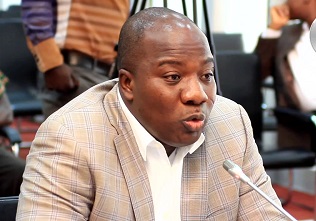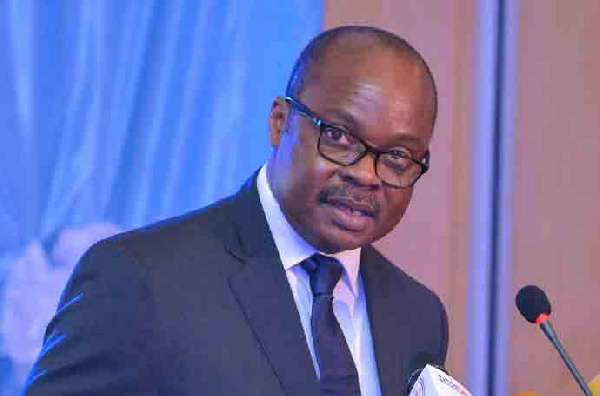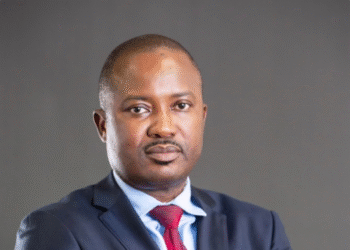The Governor of the Bank of Ghana, Dr. Ernest Addison has stressed on the fact that banks will be given enough time to capitalize to avert the negative outcomes of the Domestic Debt Exchange Programme (DDEP) on their capitalization and liquidity.
According to Dr. Addison, the central bank stands ready to safeguard the financial sector with plans to provide exclusive liquidity arrangements to banks, aside the Ghana Financial Stability Fund (GFSF), that may be affected by the Domestic Debt Exchange Programme (DDEP).
This is coming after concerns have been raised concerning the capitalization and liquidity challenges banks are likely to face by participating in the debt exchange programme.
A further directive for banks to go in for support from the Ghana Financial Stability Fund (GFSF) also seems not to seat well with some concerned Ghanaians.
According to Mahama Ayariga, National Democratic Congress Member of Parliament (MP) for Bawku Central, this directive will rather lead to a takeover of the affected banks by the Ghana Amalgamated Trust Plc(GAT) investors.

“I contend that the Domestic Debt Exchange Programme will emasculate domestic private banks, as they will face capitalization and liquidity problems given that they will not receive timely and appropriate coupon payments from their bond holder (Government of Ghana).”
Mahama Ayariga
In response to this, Dr. Addison said the Bank’s intervention, along the GFSF, will mitigate potential risks to the banking sector resulting from banks’ participation in the proposed DDEP – with the industry’s umbrella-body, Ghana Association of Banks (GAB), having agreed to participate in the Programme.
Dr. Addison opined that the government is currently collaborating with development partners to raise at least US$1billion – which will be limited to institutions that participate fully in the debt exchange. Already, the World Bank has pledged about US$250million of the targeted amount, he added.
Apart from the GFSF, Dr. Addison also noted that all the financial sector regulators will deploy regulatory and supervisory tools that mitigate financial stability risks associated with the DDEP.
“The GFSF is to be supported by the donor partners and is already capitalized at US$1billion – with the World Bank pledging to support it with about US$250million. At the Bank of Ghana, we have our own liquidity arrangements already with the banks and do not plan to be part of the Ghana Financial Stability Fund, which is mainly financed by external development partners”.
Dr. Addison
In his assuring message, Dr. Addison said that banks are fairly capitalized, some of which hold capital in excess of the regulator requirement; however, thinks that those adversely affected by the DDEP will be given ample time to recapitalize.
Meanwhile, there are emerging signs that current macroeconomic conditions are spilling over to the banking sector. Profitability levels have declined alongside other financial soundness indicators. The central bank’s latest macro-prudential risk assessments indicated increased pressure on solvency and liquidity of banks ahead of the DDEP implementation.
The industry’s Capital Adequacy Ratio (CAR), Return-On-Equity (ROE) and Return-On-Assets (ROA) have witnessed a sharp decline whereas the Non-Performing Loans (NPL) ratio improved as at December 2022.

BoG has regulatory reliefs to moderate the impact of the DDEP on banks
Dr. Addison noted that the central bank has designed some regulatory reliefs for banks to help preserve financial stability in order to moderate any potential impact on the financial sector.
“We don’t think that the forbearance measures in place will compromise the financial sector’s stability. Our banks are fairly well capitalized; as you know, most of them were holding capital in excess of the requirement. And we think those which fall slightly below the requirement will be given enough time to recapitalize; that should not compromise the integrity [of the financial sector].
“Besides that, there are backstops; both the GFSF and central bank will be there to support the system. So, I do not see any issues in terms of compromising the financial sector’s integrity.”
Dr. Addison























